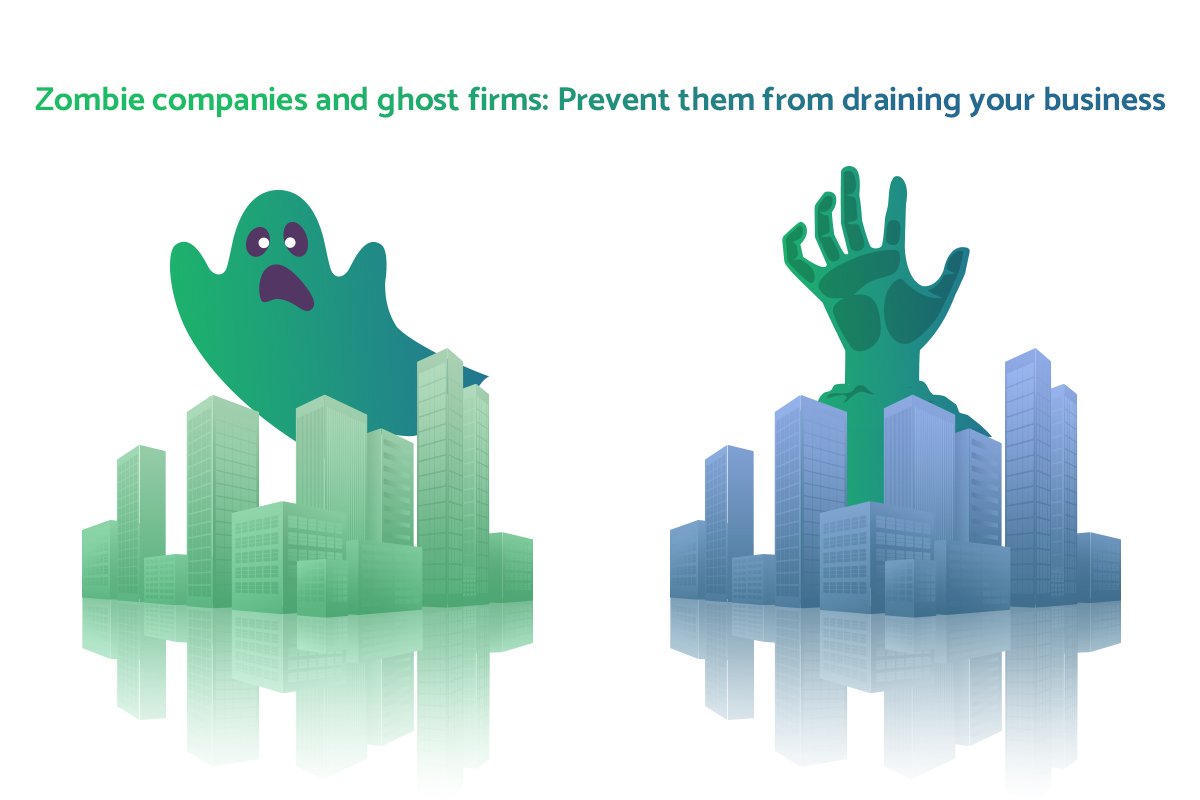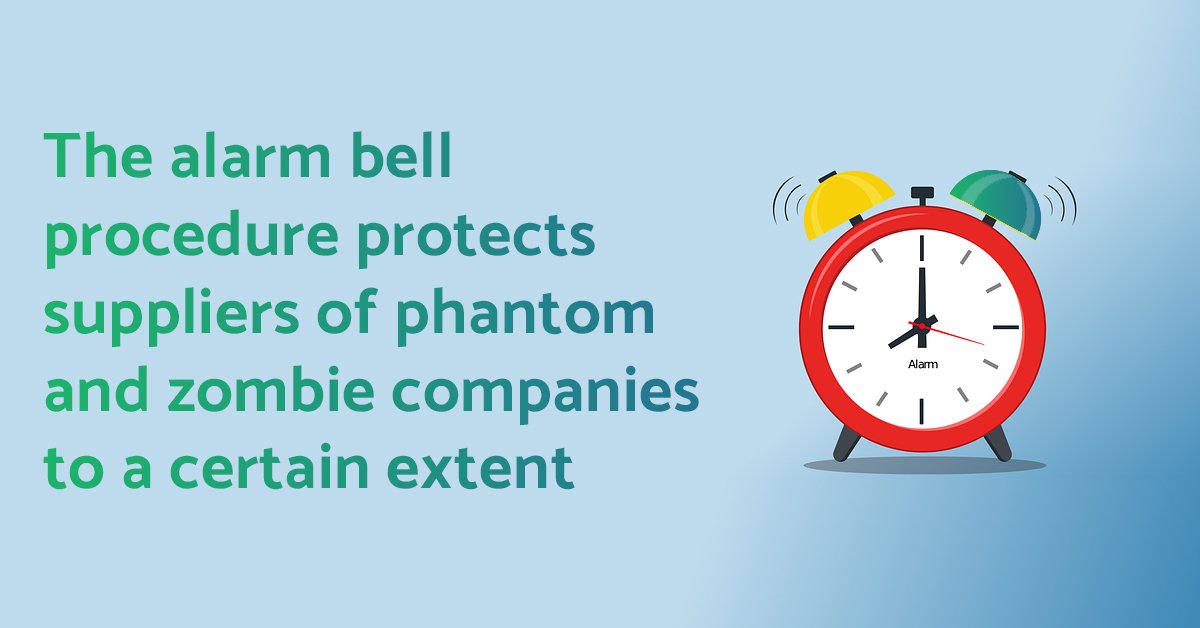Zombie companies and ghost firms: Prevent them from draining your business
In the world of business, like almost everywhere, you will, unfortunately, find managers who do not necessarily have the company’s best interests at heart. In this context, the terms 'ghost company' and 'zombie company' often crop up. Although both terms seem to come from a horror story by Mary Shelley, they refer to companies with the main purpose of looking like a company to the outside world. What is the difference between the two, and most importantly, how do you keep them at bay? Read on to find out.

Ghost or zombie enterprise, is there a difference?
Although the terms are often used interchangeably, there are significant differences:
- Ghost companies exist only on paper and do not carry out any activity. Their activity is as elusive as a ghost. In extreme cases, these companies are used by their administrators to incur as many debts as possible and then the business files for bankruptcy.
- Zombie companies do conduct business either, but their main characteristic is that their operations are loss-making. Of course, not every loss-making company is a zombie company. Zombie companies also have negative equity. That means their debts are greater than all their assets combined, making them barely viable. They stumble on like a zombie.
Zombie companies in Belgium
A recent Graydon survey shows that almost one in ten Belgian companies (older than five years) entered the coronavirus crisis as a zombie company.
This means that these companies received Covid-19 aid, although they were already in bad states before the pandemic. The question, therefore, is how these zombie companies and their partners will fare when the government reduces the Covid-19 aid.
To prevent heavily loss-making companies from causing damage to other companies simply by existing, the government has developed the alarm bell procedure. Under certain conditions, a BV, CB, or NV in financial difficulties is obliged to initiate this process. This means that directors must convene a general meeting within two months to discuss remedial measures. If the general meeting is not convened on time or in accordance with the prescribed rules, the directors can be held personally liable to a greater extent.

How to avoid ghost or zombie companies as a customer
Even though the alarm bell procedure protects suppliers of phantom and zombie companies to a certain extent, it is better not to do business with them at all. There is a real chance that they will turn out to be defaulters, and collecting invoices then becomes very difficult.
With phantom companies that exist only on paper, there are almost no means of coercion available to get the invoices paid. Zombie companies carry such a heavy burden of debt that they can never pay all their outstanding debts, not even in the event of a sale of their assets after bankruptcy.
How do you know if you are dealing with a zombie or ghost company?
- Check the figures presented by a company in recent years before accepting it as a customer. You can do so on the website of the National Bank.
- Do you still not trust the scenario? Ask a bailiff to investigate the solvency of your potential client. The bailiff will check, among other things, whether the company can be found at the address where the registered office is located.
Are you calling on Unpaid to recover an unpaid invoice? We will always check the solvency of your defaulter first, so you know where you stand before we start the procedure.